Maritime Business and Management (bachelor degree)
Faculty:
- Management and Quality Science
Level of studies:
- 1st-Cycle (bachelor’s degree)
Mode and duration of study:
- Full-time / 6 terms (3 years)
Number of ECTS credits:
- 180
Graduates skills and knowlege:
• has knowledge and skills that provide employment opportunities in various positions in mari-time industry enterprises;
• is able to use basic statistical and IT tools to analyze the market and processes occurring in the maritime industry; skillfully draws conclusions and translates them into practical actions.
• knows the principles of promoting services in the maritime sector and is able to conduct marketing activities, also in the international field,
• speaks English at a minimum level of B2, easily conducts business correspondence and communicates freely in a professional environment.
• is able to cooperate effectively with others and organize basic operational activities in a small team.
• understands the key regulations regarding maritime transport, forwarding and trade activi-ties; is able to apply them in practice.
Chosen courses:
- Principles of Enterpreneuership
- International Forwarding
- Cruise Ship Tourism
- Fishing Industry
- Port Management and Operations
- Business Negotiations
- Interpersonal Communication
Student internship:
The curriculum of the Bachelor's degree programme in MBM provides for the completion of an Internship, which is carried out in accordance with the Internship Framework. Professional Internship is carried out after the end of semester V of studies (it is settled after semester VI).
Students can complete internships in companies from the TSL (transport-forwarding-logistics) sector, maritime agencies, import and export trading companies, sea ports, as well as in industries related to maritime tourism, fishing and fish processing.
After graduation:
• Graduates can find employment in companies from the TSL sector (transport-forwarding-logistics), maritime agencies, trading companies dealing with import and export, sea ports, as well as in industries related to sea tourism and fishing and fish processing. The knowledge and skills they possess also enable them to establish and run their own trading, consulting or logistics companies, both on the domestic and international market.
• Graduates can continue their education in second-cycle studies (master's degree), which al-lows them to deepen their knowledge and acquire broader managerial competences, useful in work in managerial positions and in managing enterprises.
You can work in:
- ports and port services companies
- forwarding and logistics companies
- maritime agencies
- dockside industries,
- seafarers' recruitment companies,
- insurance and brokerage companies
- fishing and fish processing companies,
- maritime industry consulting companies.

